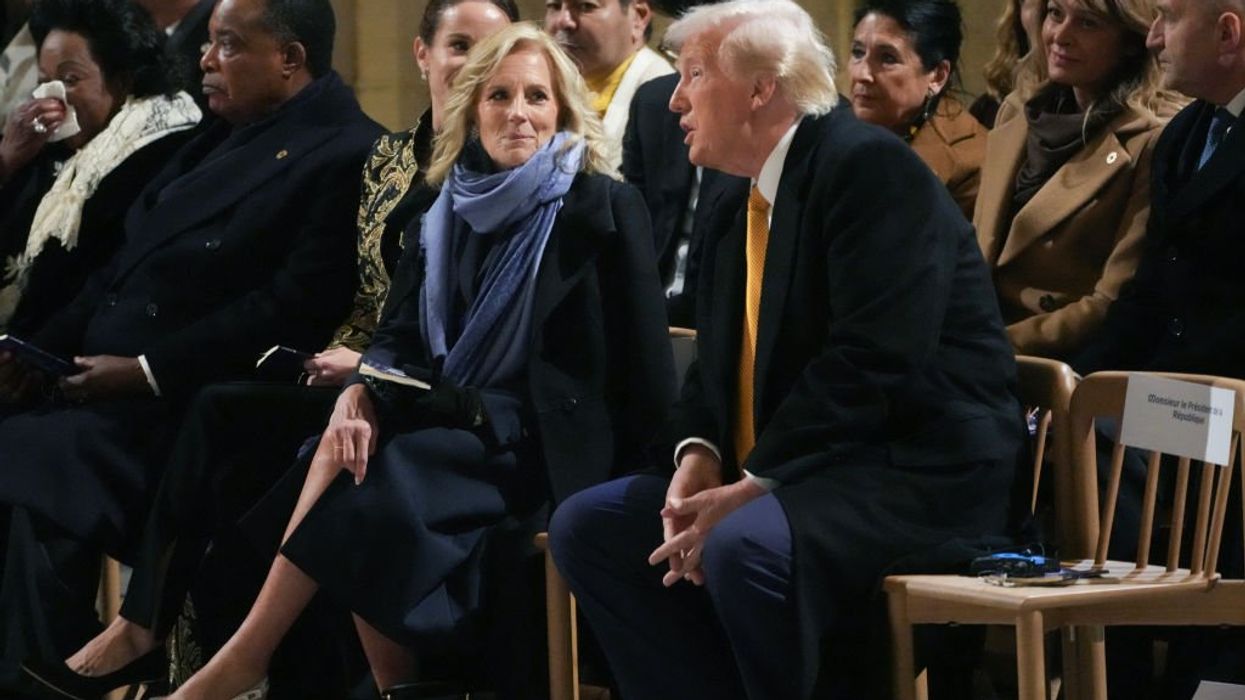
© 2024 Blaze Media LLC. All rights reserved.
Court: No Warrant Required for Cellphone Location Data Because It's 'Clearly a Business Record
July 31, 2013
"...location information is sensitive and can reveal a great deal..."
The U.S. Court of Appeals for the Fifth Circuit has joined two other federal appeals courts to rule that law enforcement can obtain cellphone location data from communication companies without a warrant as it should not be considered protected under the Fourth Amendment.
 A third appeals court has ruled collection of cell site data from companies does not require a warrant. Cellphones connect to the nearest cell tower and can be used to help figure out a person's position at a given time. (Photo: Shutterstock.com)
A third appeals court has ruled collection of cell site data from companies does not require a warrant. Cellphones connect to the nearest cell tower and can be used to help figure out a person's position at a given time. (Photo: Shutterstock.com)
The divided 2-1 ruling came Tuesday with the court decision stating cell site data is "clearly a business record" and that law enforcement requesting such data did not need a probable cause warrant as it is "not per se unconstitutional."
"The cell service provider collects and stores historical cell site data for its own business purposes [...] the government merely comes in after the fact and asks a provider to turn over records the provider has already created," the ruling said.
It also said the government "does not require a member of the public to own or carry a phone," suggesting that users can't hold a reasonable expectation of privacy as they chose to own the phones.
The appeal came from the government after a magistrate judge denied their initial request to obtain the records from two cell companies.
The Electronic Frontier Foundation called the decision of the court "misguided."
"That's because the court focused not on what the data revealed -- a person's location over an extended period of time -- but rather on who owned and generated that data: the cell phone providers," EFF stated. "Since these records were owned and created by the phone providers, the user has no expectation of privacy in them and thus no search warrant was needed to access that data. The court did not address whether people have a reasonable expectation of privacy in their movements and made clear its decision only concerned obtaining historical cell site records when a user makes or ends a phone call."
The ACLU too had stepped in to voice its opinion to the court ahead of the decision, and called the ruling "troubling":
Cell phone companies store records on where each of us have been, often stretching back for years. That location information is sensitive and can reveal a great deal—what doctors people visit, where they spend the night, who their friends are, and where they worship. Given the sensitivity of these facts, law enforcement agents should have to demonstrate to a judge that they have a good reason to believe that they will turn up evidence of wrongdoing before gaining access to information that can paint a detailed picture of where a person has been over time.
Although the Supreme Court has not taken up the issue of law enforcement obtaining cell site data yet, it did rule last year that placing a GPS device on a car without a warrant was an unconstitutional search. Cell site data can be used to triangulate about where a cellphone was at a given time based on its connections to the nearest cell towers. A DOJ official said in 2012 that requiring law enforcement to obtain warrants for cell site data would "cripple" their investigations.
Featured image via Shutterstock.com.
(H/T: PC World)
--
[related]
Want to leave a tip?
We answer to you. Help keep our content free of advertisers and big tech censorship by leaving a tip today.
Want to join the conversation?
Already a subscriber?
more stories
Sign up for the Blaze newsletter
By signing up, you agree to our Privacy Policy and Terms of Use, and agree to receive content that may sometimes include advertisements. You may opt out at any time.
© 2024 Blaze Media LLC. All rights reserved.
Get the stories that matter most delivered directly to your inbox.
By signing up, you agree to our Privacy Policy and Terms of Use, and agree to receive content that may sometimes include advertisements. You may opt out at any time.


